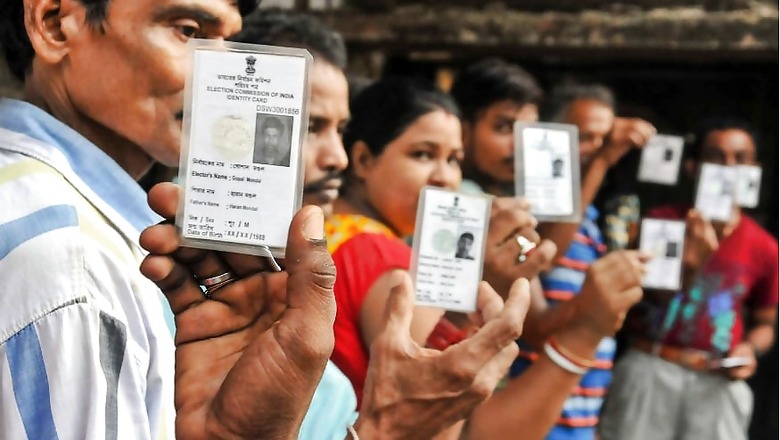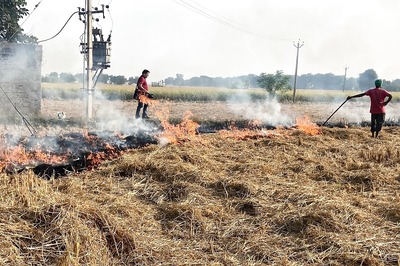
views
As the 17th Lok Sabha elections near with every passing day, the ‘world’s largest democratic exercise’—due within the next 90 days—is witnessing newer participants.
Between mid-October and December 2018, 60 new political parties were registered with the Election Commission of India (ECI). Out of these 60 new parties, 20 are from Uttar Pradesh (UP), 6 from Rajasthan, Madhya Pradesh and Bihar, each and 5 are from Telangana.
This cropping up of new political parties before election season kicks in is not a new phenomenon. Earlier in 2014 also, the last time when Lok Sabha polls were held, as many as 239 new outfits had enrolled themselves with the Election Commission between March 2014 and July 2015, taking their number to 1,866.
This rush in forming new parties just before elections, experts believe, is done by bigger parties to cut the opposite parties vote share. There are hundreds of political parties that stay registered with the EC, but rarely contest polls.
“It’s not an unusual activity to register a political party before an election”, says Sanjay Kumar, Director at the Centre for the Study of Developing Societies (CSDS). “Political parties are meant for contesting elections.”
“But what worries me is the large number and the timing” he added, noting that it is bad politics.
“Too many parties have been registered in a very short time… my suspicion is that bigger political parties are involved in registering these parties to bring down the votes for the opposition [parties].”
News18.com analysis of these new 60 political parties also shows the trend of registering parties with names that are similar to existing ones. A party called Aapki Apni Party (Peoples) was formed in November 2017 and has since then been registered with the ECI. The name is similar to another Indian political party, the Aam Admi Party, and both the names abbreviate to AAP.
Tactics centred around misleading names are also used while fielding candidates. For example, in the 2016 Kerala assembly elections, the Left Democratic Front (LDF) supported an independent candidate by the name KT Abdul Rahiman from Eranad. At the same time, another independent named K T Abdurahiman also contested from Eranad. This is noteworthy also because independent candidates, unlike parties, are not represented on the ballot paper against symbols that are easily recognizable and neither are photographs displayed.
Speaking about the number of new political parties from Uttar Pradesh, Kumar says that in view of the Samajwadi Party (SP) and the Bahujan Samajwadi Party (BSP) coming together, “maybe some parties have been propped-up in order to cut the votes for the alliance.”
The issue, though, is larger.
Anil Verma, head of the Association for Democratic Reforms (ADR) says that the principal problem is that it is very easy to get a political party registered.
In brief, a party seeking registration is required to submit an application to ECI with details like name, name of office bearers, address, etc. within 30 days of its formation. Additionally, the party is also required to get an advertisement published in 2 national and 2 regional newspapers with details of name, address, etc.
“The process,” Verman explained, “is, therefore, fairly simple.”
The process of de-recognition of parties is also not conducted regularly by the ECI, Verma added.
“Of all the registered parties, only about 25% actually contest elections. So, what are the rest of them doing?” he asked.
In 2014, of the 1,866 parties that were registered with the ECI, only 464 contested in the General Elections. The scenario was not very different during the 2009 Lok Sabha election. Out of the 1,000 unrecognized parties, only 322, or 32%, contested the polls.
The question thus arises that why are there so many parties registered with ECI when three-fourths of them do not participate in the democratic process.
Verma pointed out that the income earned by political parties is exempt under income tax laws and parties are only required to file their returns.
Political parties are completely exempt from paying income tax as long as they file their returns with the tax department and submit to ECI details of any donations above ₹ 20,000, which they receive annually. Even if the parties declare that they haven’t received any amount above ₹ 20,000 from a single donor, they still enjoy the tax exemption. So political parties that do not contest in elections can continue to collect donations and enjoy tax exemption.




















Comments
0 comment